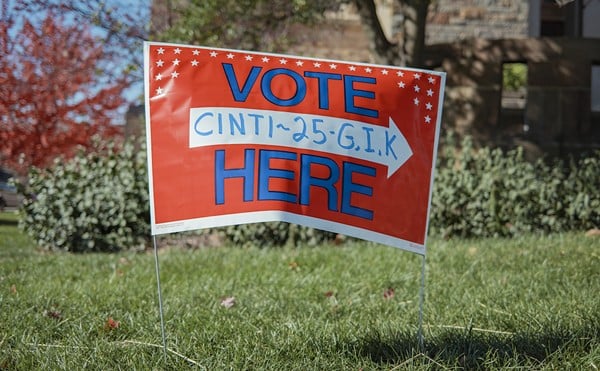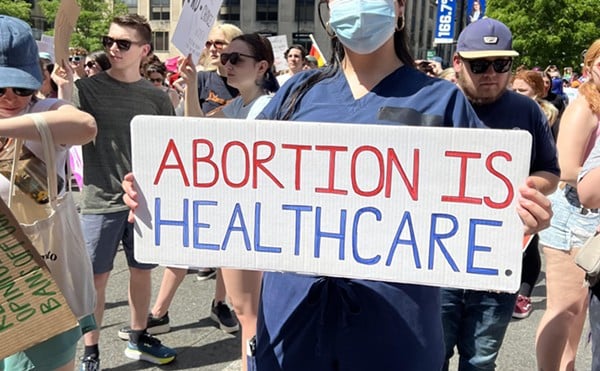The images from New Orleans and Mississippi were horrible the week after Hurricane Katrina struck: old people slumped in wheelchairs, babies in dirty diapers and everyone else in between, almost all with empty eyes.
During the occasional glimpse at the Superdome or the Convention Center or a flattened Gulfport via news coverage, it quickly became apparent that TV viewers knew more about these souls than government officials did. And when the days came and went and still no one rescued these desperate people, the reality sank in: They were expendable.
The literal and the mythical battled to overwhelm our emotions.
For a variety of reasons, tens of thousands of mostly poor residents stayed in their homes when Katrina struck Aug. 29 and were stranded without food, water, medicine or electricity. Yet the wealthiest nation on Earth — able to drop military cargo anywhere in the world on a moment's notice, willing to dig through the World Trade Center rubble before it had even cooled on 9/11 — couldn't organize any kind of meaningful aid for five days.
The symbolism surrounding the disaster was just as heartbreaking. Entire books can be — and will be — written about the images of poor New Orleans residents stripped of what little they own begging for subsistence aid in the hallowed halls of America Inc. ®, the Superdome (home to billionaire sports team owners and millionaire athletes) and the Convention Center (where Big Business meets to plan ways to make more money).
And the people were left behind. Literally, figuratively, mythically, biblically, they were left.
I think that's what struck such a deep chord in Americans in the hurricane aftermath — we came face-to-face with fellow citizens who right there on our TVs were left to die on the streets of a major American city, and not even the "they" we depend on to fix all our problems were coming to save them.
The images of suffering and the tales of horror — rapes, murders, floating bodies, looting — ripped away the veil of secrecy Americans keep over our poor brothers and sisters, and we weren't ready for the awful truth. Shame, disgust and empathy rolled over us, and we're still trying to process the feelings and the stress.
How could America allow this to happen, we asked on Day 2 post-Katrina. Does America really allow this to happen, we wondered on Day 6. Why does America allow this to happen, we ask each other now.
Americans don't like to deal with poor people, which isn't a news flash by any means. We've turned them into a statistic, dehumanizing them in order to more easily process and then ignore them.
They're the ones who live in the bad neighborhoods we avoid. They attend the poorly performing schools in the crappy buildings. They clog up hospital emergency rooms because they don't have regular doctors. Sometimes they panhandle us downtown.
They live on less than $19,000 for a family of four. They're 12.5 percent of the U.S. population, which translates to 36 million Americans. Blah blah blah.
Sure, we care about the poor, because we're, you know, compassionate. We donate canned goods at appropriate times and help a family or two with Christmas gifts, but we "care" about the poor the same way we "care" about the weather — whaddaya gunna do about it?
In the wake of Katrina's devastation, the numbers and statistics were replaced with real faces and real people — at least temporarily. And that made a lot of folks very uncomfortable.
Some conservative radio talk show hosts berated the refugees for allowing themselves to be left behind, wondering aloud why "those people" didn't drive out of town before the hurricane hit and if they didn't somehow deserve the subsequent horrors. Some conservative politicians thought the best way to honor the victims was to push for a quick repeal of the estate tax, arguing that the extra money rich people will have after not paying estate taxes will boost economic growth and trickle down to the poor along the Gulf Coast.
Part of the anger we're now directing at President Bush and other incompetent government officials might come from anger at ourselves — for not knowing about the millions of poor, uneducated, unhealthy citizens living in the world's most prosperous country. Or for not wanting to know. Or for not doing anything about it.
It's sad — or cruelly ironic — that, as political forces push the United States toward embracing Christianity as a sort of state religion, Americans become less and less Christ-like. How you treat the least of your brothers, Jesus said, is reflective of how you treat me.
Katrina has been an unwelcome guest in more ways than one, but we can't forget what she's taught us.





